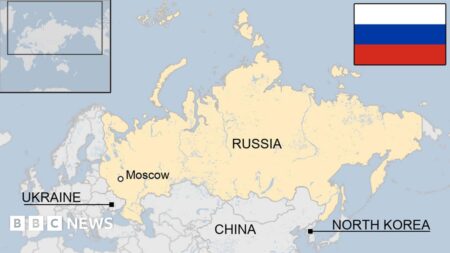In a notable shift within academia, a number of scholars specializing in fascism studies and vocal critics of former President Donald Trump have decided to leave Yale University for opportunities in Canada. This migration highlights not just individual career choices but also a growing sentiment of dissatisfaction among some intellectuals regarding the current political climate and its impact on academic freedom. The ongoing debates around freedom of expression, ideological intolerance, and the role of higher education in a polarized society are fueling discussions around these departures. As these scholars seek new environments that align better with their values and research goals,their exodus raises vital questions about the state of academic discourse and the future of political scholarship in the United States. This article delves into the motivations behind this trend and its implications for both the institutions left behind and those welcoming these academics across the border.
Fleeing the Political Climate: Why Yale Scholars are Seeking Refuge in Canada
in a surprising turn of events, numerous scholars from Yale University have made the decision to relocate to Canada, citing an increasingly unfriendly political surroundings in the United States. These academicians, many of whom have focused their research on the rise of authoritarianism, populism, and the socio-political implications of the Trump era, argue that the current climate is stifling open discourse and intellectual freedom. They feel that Canada, with its more welcoming policies and commitment to academic freedom, offers a sanctuary where they can continue their work without fear of political backlash. Key motivations for this migration include:
- A hostile political environment: The growing polarization in U.S. politics creates an atmosphere where many feel unsafe to express their views.
- Academic freedom: Canadian institutions are perceived as champions of open dialog, encouraging scholarly debate on controversial subjects.
- Support for dissent: Many Canadian universities provide resources and platforms to amplify voices critical of oppressive regimes.
This trend raises questions about the future of academic scholarship in America, particularly in fields related to democracy and human rights. Recently, several researchers from Yale appeared at Canadian academic conferences, sparking discussions regarding the implications of their absence from American institutions. A survey of some of these scholars highlights their concerns and aspirations:
| Scholar | Field of Study | Reason for Leaving |
|---|---|---|
| Dr. Anna Feldman | Political Science | Intolerance of dissenting views |
| Prof. John Michaels | History | Fear of censorship |
| Dr.Laura Kim | Philosophy | Desire for open discourse |
Impact on Academic Discourse: The Departure of Trump Critics from Prestigious Institutions
The recent exodus of prominent critics of former President Donald Trump from esteemed academic institutions like Yale has sparked a important discourse around the evolving power dynamics within educational environments. With an increasing number of scholars opting to relocate to Canada, various factors are influencing their decisions, such as:
- Political Climate: Increasing hostility towards dissenting voices on U.S. campuses.
- Academic Freedom: Concerns over the constriction of free expression in scholarly debates.
- Inclusive Scholarship: A pursuit of environments that prioritize intellectual diversity.
This shift raises questions about the future of academic discourse, particularly within the fields of political science and history, where critical examination of leadership is paramount. The implications could be profound, as the departure of these scholars not only affects their individual research but may also:
- Limit Diverse Perspectives: An echo chamber effect could emerge, stifling dissenting views.
- Impact Curricula: Changes in faculty composition may lead to alterations in educational offerings.
- Influence Future Generations: Students may miss out on thorough discussions that challenge prevailing narratives.
| Institution | Actions Taken |
|---|---|
| Yale University | Withdrawal of Trump critiques |
| Canadian Universities | Welcoming dissidents |
canada as a Safe Haven: Assessing the Response of Academic Communities to Political Pressures
Canada has increasingly emerged as a focal point for scholars disillusioned by the political atmosphere in the United States,particularly those facing backlash for their academic pursuits.The migration of fascism scholars and critics of authoritarianism exemplifies a growing trend where educators seek refuge in a more supportive climate. They are drawn by a professional environment that champions intellectual freedom and inclusivity, standing in stark contrast to the escalating political pressures in the U.S. Key factors driving this migration include:
- Academic Freedom: Canadian institutions emphasize the importance of free expression and scholarly inquiry.
- Supportive Policies: Canada’s immigration policies are increasingly accommodating to academics seeking to escape political repression.
- Cultural Alignment: Many scholars find a welcoming cultural landscape that aligns with progressive values.
In light of these developments, the response from Canadian academic communities has been overwhelmingly positive, encouraging a robust exchange of ideas and diverse viewpoints. By fostering a safe haven, Canadian universities are not only attracting talent but also enriching their academic ecosystems. This influx of scholars contributes to a vibrant discourse on extremism, democratic resilience, and the importance of maintaining unbiased scholarship in the face of adversity. Below is a summary of the notable programs and institutions that are actively recruiting scholars looking for a haven from political strife:
| Institution | Specialized Program | Support Offered |
|---|---|---|
| University of Toronto | Centre for Global Change and Governance | Mentorship & Research Grants |
| McGill University | Institute for the Study of Global Antisemitism | Fellowships & Networking Opportunities |
| York University | Centre for Freedom of expression | Workshops & Public Lectures |
Future Implications: What the Exodus Means for Faculty Diversity and Freedom of Expression
The recent departure of prominent scholars from Yale to Canada raises significant questions regarding the future landscape of faculty diversity and the climate of intellectual freedom in academia. As noted in numerous discussions, faculty diversity is not merely a numerical representation of different backgrounds but also a rich amalgamation of perspectives that enhances the educational experience. The exodus highlights a concerning trend where scholars believe they must leave their institutions in search of environments that are more conducive to open dialogue and less punitive towards dissenting views. This shift could result in a homogenization of thought within U.S. universities, compromising the vrey core of academic inquiry.
Moreover, the implications of this migration extend beyond individual institutions. As scholars seek refuge in more progressive environments, institutions may face pressure to reassess their policies and practices regarding freedom of expression. The risk is twofold: on one hand, universities may struggle to attract and retain diverse faculty members if they are perceived as hostile to certain viewpoints; on the other, they may inadvertently foster environments that prioritize political correctness over rigorous academic debate. To visualize these contrasts,consider the following table:
| Aspect | Current U.S. Landscape | Potential Canadian environment |
|---|---|---|
| Faculty Diversity | Moderate, with pushback on non-conforming views | Higher tolerance for diverse opinions |
| Freedom of Expression | increasing restrictions on controversial discussions | Support for open debate and discourse |
| Academic Inquiry | Risk of intellectual conformity | Robust, diverse intellectual engagements |
Future Outlook
the departure of notable scholars from Yale University to Canada underscores the ongoing tensions within academia regarding the rise of populism and the implications of political discourse in educational environments.As critics of former President Donald Trump and researchers on fascism seek more welcoming academic contexts, their migration raises critically important questions about the future of scholarly freedom and the ideological climate at prestigious institutions. This trend reflects a broader,global conversation about the pursuit of intellectual safety and the challenges faced by academics in politically charged atmospheres. As these scholars navigate their new landscapes, the long-term effects of such relocations on both their disciplines and the institutions they leave remain to be seen, suggesting a pivotal moment for higher education in the United States and beyond.




